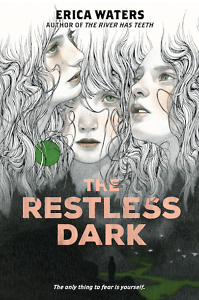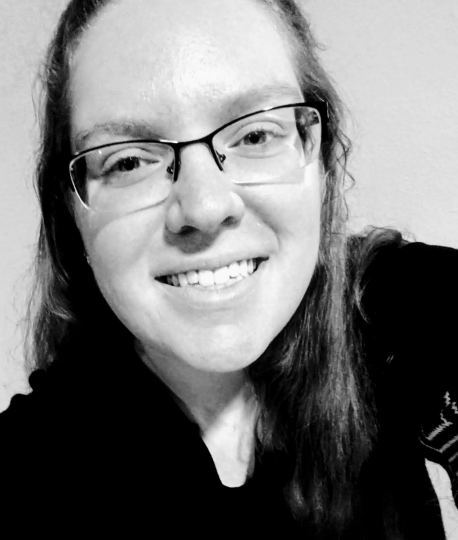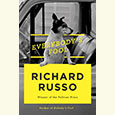Seeing Through the Fog
Evil haunts every corner of Erica Waters’ The Restless Dark
Erica Waters returns to her theme of portraying horror in the South — featured in her previous two novels Ghost Wood Song and The River Has Teeth — in her latest YA thriller The Restless Dark.

In the rough mountain wilderness of Cloudkiss Canyon, die-hard fans of the true-crime podcast “Human Beasties” gather for a six-day Killer Quest to find the elusive bones of the famous Cloudkiss Killer, Joseph Kincaid. Among the participants is Lucy, our primary narrator and the girl who would have been the Cloudkiss Killer’s final victim. She’s back to find his bones in the hopes of releasing the hold his memory still has over her. Carolina, the alternating narrator of the book, is a true-crime fan who is afraid she has more in common with the killers than the victims. Maggie, on the other hand, is a psychology student aiming to write a groundbreaking paper on the psyche of true-crime podcast listeners.
Kevin and Sandra, the hosts of the “Human Beasties” podcast, recount the lore of Cloudkiss Canyon on the first night of the quest as they and the participants gather around a stage lit by surrounding firepits. Kevin launches into the story, stating, “Cloudkiss used to be a place people came to rid themselves of unwanted memories, emotions, and desires.” The ledge of the dark canyon served as a “place of discarding and forgetting. Just toss the thing you wish to be rid of into its depths, and the canyon will do the rest.” Joseph Kincaid, a local professor, used the canyon as a base camp for his murderous hobby: capturing, killing, and mutilating five victims, displaying their remains in a twisted form of art or homage to the canyon. According to Kevin and Sandra, though, it’s the ever-present fog of the canyon that people have to worry about.
 “The canyon is foggy most days of the year, and it’s become a sort of boogeyman in these parts. Whether the locals we talked to described the canyon as cursed, haunted, or evil, they all agreed on one thing: it’s the fog you’ve got to watch out for. … No one could tell us exactly what it was. But they all agreed, it was the fog that would get you into trouble.”
“The canyon is foggy most days of the year, and it’s become a sort of boogeyman in these parts. Whether the locals we talked to described the canyon as cursed, haunted, or evil, they all agreed on one thing: it’s the fog you’ve got to watch out for. … No one could tell us exactly what it was. But they all agreed, it was the fog that would get you into trouble.”
Waters weaves the narratives of Lucy, who has always been defined as a helpless victim, and Carolina, who lives in fear of hurting those around her. Lucy is desperate to prove she can fend for herself. Carolina’s father has always told her she has evil inside her just waiting to destroy. In an inversion of stereotypes, Lucy spends the majority of the novel lashing out at those around her, while Carolina dotes on Lucy, smothering her with motherly care. Maggie, meanwhile, neglects to share much about herself; instead, she lives by creating scenarios for others to play through, choreographing content for her psychology paper. Lucy and Carolina find themselves behaving in ways they never thought they could.
Waters’ subversion of the female victim is refreshing. This is not the same revenge fantasy tale of the “final girl” as covered in other novels such as Grady Hendrix’s The Final Girl Support Group or Stephen Graham Jones’ The Last Final Girl. Rather, Waters examines the psyche of every individual in the novel, even the minor characters, illustrating the ways an environment can change a person. For example, the number of incidents only rise as the quest continues. A woman who came as part of a bachelorette party winds up in the hospital; a man comes screaming out of the woods, pointing toward Lucy and Maggie and sobbing in fear; and tensions rise as the unease, stress, and fog constantly permeate the air.
The Restless Dark takes the concept of “final girl” and turns it on its head, revealing the choreographed nature of the typical victim to killer tale and opening a new wound to examine, one in which characters are forced not only to act upon their darkest impulses, but to live with the consequences. As burgeoning psychology expert Maggie puts it, “Isn’t it compelling, the idea of being forced to confront yourself, to find out who you really are, what you’re really capable of? Of seeing the drama that plays out in your mind made real and concrete, where you can get at it in the physical realm?”

Abby N. Lewis is a part-time desk assistant for the North Knoxville Library and an adjunct English instructor at ETSU. She is the author of the poetry collection Reticent and the chapbook This Fluid Journey.


